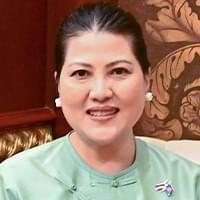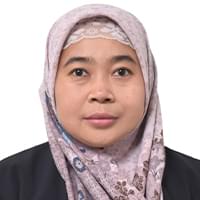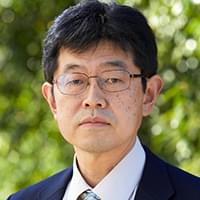- 29 July 2025
- JST 13:20 - 14:20 (GMT+09:00)
- 503 + Online
- Simultaneous interpretation
Just and Inclusive Transition towards Net-Zero and Resilient Societies in ASEAN
Before viewing
This footage is a direct recording of the meeting proceedings, and therefore it contains parts in both Japanese and English.
Please use the YouTube subtitles (CC) function as needed.
- Click the settings icon at the bottom right of the video screen.
- Select “subtitles” → “English (auto-generated)”.
- Under “English (auto-generated)”, select “auto-translate” and choose your preferred language.
Note: For example, if you select Japanese, subtitles will not be displayed for Japanese speech, and only the English portions will be shown with Japanese auto-translation.
We appreciate your understanding and cooperation.
Summary
This session featured a multifaceted discussion on strategies to integrate climate action and social challenges in the ASEAN region. IGES introduced its proposed macro framework, which consists of seven principles and actions designed to support synergistic implementation of mitigation, adaptation, and sustainable development. The framework emphasises not only scientific and policy synergies but also social inclusion, including gender equality, as a central pillar of policy design. It is expected to be reflected in national and regional strategies such as Long-Term Strategies (LTS), Nationally Determined Contributions (NDCs), National Adaptation Plans (NAPs), and the ASEAN Climate Change Strategic Action Plan (ACCSAP), currently under development. These efforts aim to mainstream climate action and enhance institutional coherence across ASEAN.
Three experts presented key conditions for achieving a just and inclusive transition from their respective fields. The first speaker emphasised the importance of gender mainstreaming and protecting the rights of vulnerable groups across the ASEAN Community’s political-security, economic and socio-cultural pillars. She stressed the need to carefully consider whose transition to net-zero and resilience is being addressed. She called for inclusive decision-making from the outset, ensuring participation by women and youth, and safeguarding the rights of low-income groups, persons with disabilities, children, ethnic minorities and migrants. Climate policy, she argued, should be framed as a pathway to social justice—not merely as environmental policy.
The second speaker outlined the evolution of inclusive energy transition discussions, beginning with the publication of the ASEAN Gender and Energy Report in 2022. She highlighted the importance of clearly defining what a just and inclusive energy transition entails and identifying its scope. She also pointed to the need for capacity building in data management, such as tracking the number of women in the renewable energy sector and indigenous peoples in coal mining. Aligning ACCSAP’s climate actions and inclusiveness with the ASEAN Plan of Action for Energy Cooperation (APAEC) would, she noted, enhance the effectiveness of energy transitions in the region.
The third speaker presented scientific policy design efforts using the Asia-Pacific Integrated Model (AIM) in countries such as Thailand and Indonesia. He explained the effectiveness of long-term scenarios that balance economic development and decarbonisation. He emphasised the importance of communication between model developers and policymakers, as well as the value of training programmes. He also noted the challenge of incorporating social transformation—such as women's participation—into model-based research, alongside technological pathways.
Throughout the session, participants shared a common understanding that achieving a just and inclusive transition in ASEAN requires integrating the perspectives of vulnerable groups into policy, while ensuring both institutional coherence and scientific rigor.
Summary written by: ARINO Yosuke (IGES) | KOMIYA Haruta and HORIOKA Akari, Climate Youth Japan (CYJ)
Panel Discussion
ARINO Yosuke, Senior Research Manager / Lens Facilitator, Strategic Management Office, IGES

ARINO Yosuke
Senior Research Manager / Lens Facilitator, Strategic Management Office, IGES
Thailand Representative to the ASEAN Commission on the Promotion and Protection of the Rights of Women and Children (ACWC) / Director of the Asian Research Center for Migration, Institute for Asian Studies at Chulalongkorn University

Ratchada JAYAGUPTA
Thailand Representative to the ASEAN Commission on the Promotion and Protection of the Rights of Women and Children (ACWC) / Director of the Asian Research Center for Migration, Institute for Asian Studies at Chulalongkorn University
Dr. Jayagupta serves as Thailand’s Representative to the ASEAN Commission on the Promotion and Protection of the Rights of Women and Children (ACWC) and is the Director of the Asian Research Center for Migration at Chulalongkorn University. A dedicated advocate and practitioner with over 25 years of experience, she is deeply committed to women's rights and gender justice. Her work focuses on women’s empowerment and the mainstreaming of Gender Equality and Social Inclusion (GESI), particularly in the context of climate action and development policy. She is a strong voice in promoting women’s leadership and decision-making, addressing human trafficking, and protecting populations affected by forced migration and labor exploitation. Her influence extends through her advisory role to Thailand’s Minister of Justice and as member of the National Sub-Committee on Anti-Human Trafficking, where she actively collaborating with diverse stakeholders to drive inclusive and equitable development outcomes across the ASEAN region.

Ambiyah ABDULLAH
Senior Researcher, Energy Modelling and Policy Planning Department, ASEAN Centre for Energy

MASUI Toshihiko
Director of Social Systems Division, National Institute for Environmental Studies, Japan (NIES)
-min.JPG)
-min.JPG)
-min.JPG)
-min.JPG)
-min.JPG)
-min.JPG)
-min.JPG)
-min.JPG)
-min.JPG)
-min.JPG)
-min.JPG)
-min.JPG)
